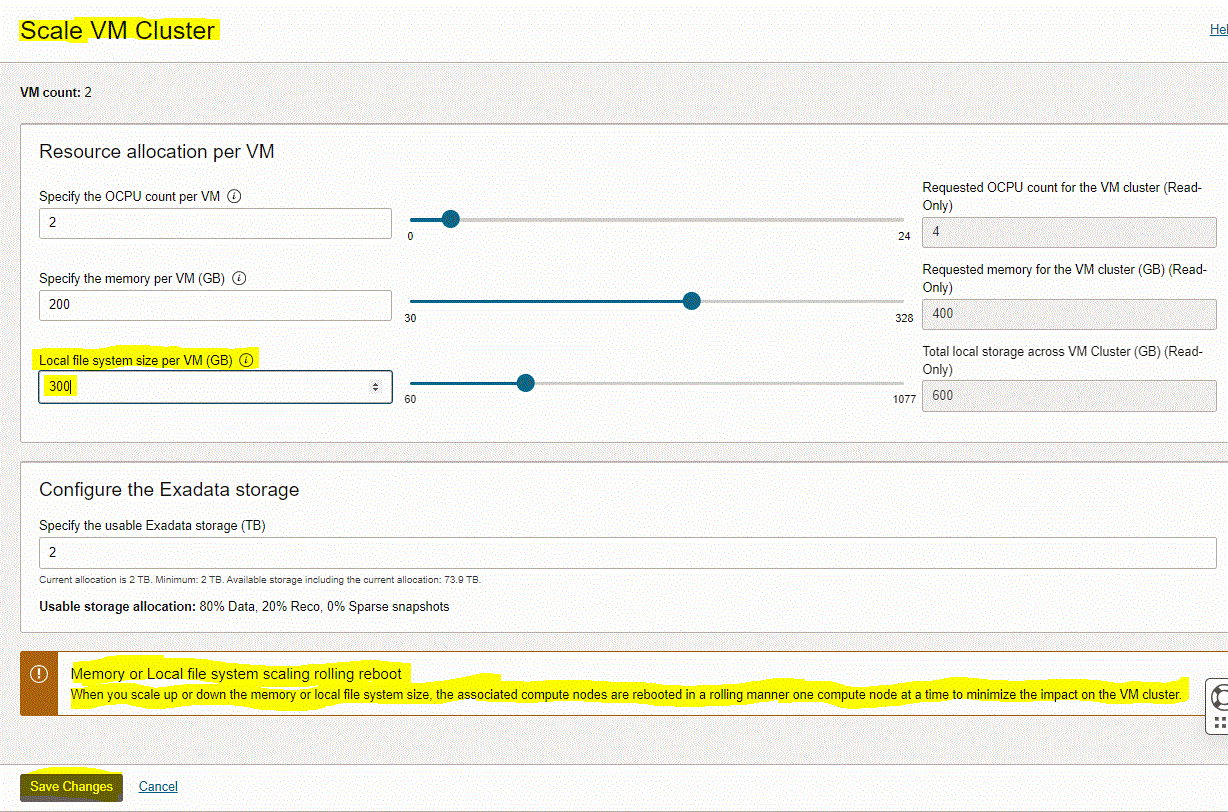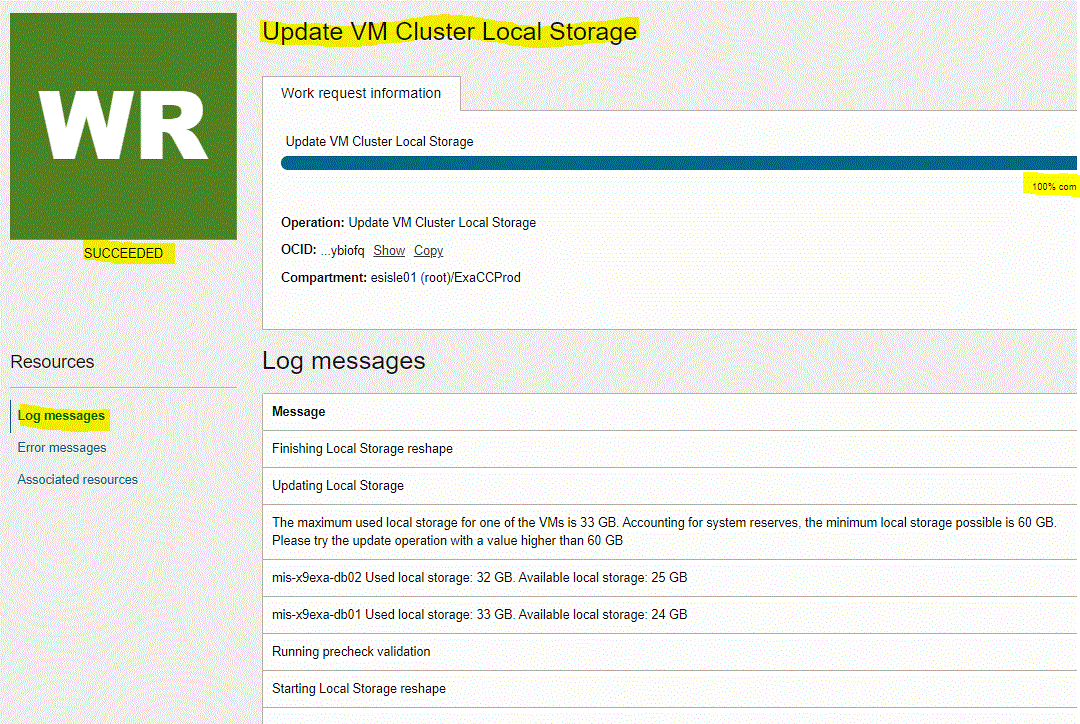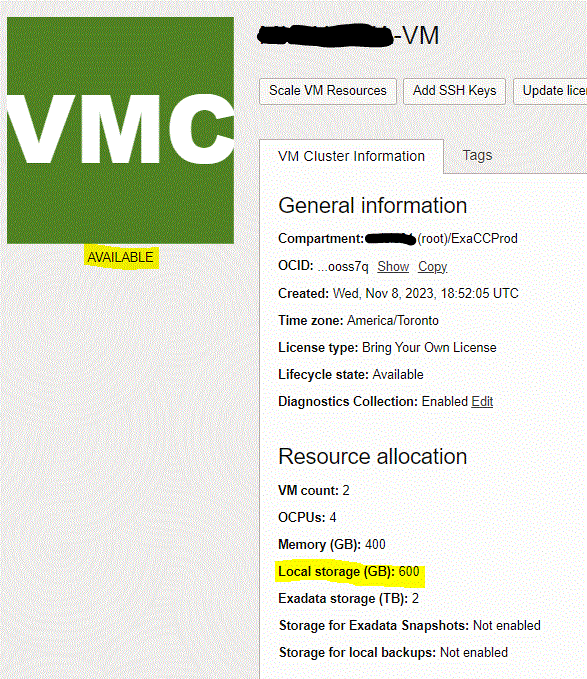Oracle 23c: Managing Flashback Database Logs Outside the Fast Recovery Area
Overview: In previous Database releases, you could store flashback database logs only in the fast recovery area Oracle 23c Database introduces the ... Read More
Learn more about why Eclipsys has been certified as a Great Place to Work in Canada, Best Workplaces in Ontario and Technology, and named Canada’s Top SME Employer for 3 years!
Learn more!In this blog, I’ll demonstrate the steps to scale up local file system size using the OCI console.
1. Sign in to your OCI tenancy where your Exadata Database Service on Cloud @ Customer system is deployed
2. Navigate to “Oracle Database” > “Oracle Exadata Database Service on Cloud@Customer” > “Exadata VM Clusters“

3. Click on your VM cluster name.

4. On the VM cluster details home page, click the “Scale VM Resources” button

5. On the “Scale VM Cluster” screen, under the “Resource allocation per VM” section, enter the local file system size per VM then click the “Save Changes” button


You can track scaling progress and activities from the “Work Requests” page under the Resources section on the VM cluster details home page


Once scaling is completed, the cluster’s state will be changed back to “AVAILABLE”. Under the “Resource allocation” section, Local Storage (GB) will show the new total size for the cluster.

Also, you can confirm the new size from the VM node by running the df -h command.

Overview: In previous Database releases, you could store flashback database logs only in the fast recovery area Oracle 23c Database introduces the ... Read More
Overview: Oracle 23c Database introduces a new feature to control whether a user or session is enabled for read-write operations, irrespective of the ... Read More